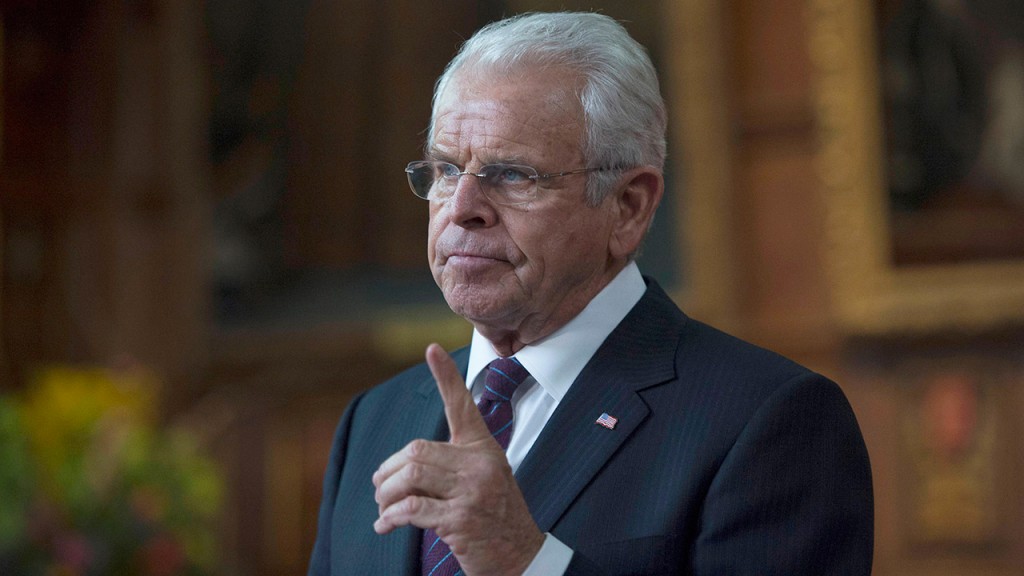
His vision for Heller as president, he says, was always to present a complex portrait of a man and a politician. “Whenever we see the president, we only see what they want us to see. It’s all a controlled profile. Everything we see of Obama is basically what they want you to see.”
Devane wanted to give viewers a sense of the private-public struggle, right down to sporting a sweater while hanging out in the West Wing. “The Grandpa look!” he barks. “You never see the president lookin’ like that!” He laughs.
“Obviously I’m a big fan of Obama, as a guy who’s smart and articulate and supposedly leading all of us. I say to myself, ‘what has got to be going on in the private side of this guy’s brain’ — the pressure, the racism that is thrown out — and he handles it with such dignity. There’s a gotta be a private side to him where he goes, ‘Why do I have this job?'”
Alzheimer’s and Real Time
But Heller’s Alzheimer’s can’t progress that quickly, especially on a show set somewhat in “real time.” It has only been a matter of hours since the season began with a hint of his struggle. “We wrestled with that aspect of it,” says Bob Cochran, co-creator of 24. “If he was symptomatic to the degree it was noticeable, he would have no business remaining president.”
Executive producers Evan Katz and Manny Coto say the key was focusing on Heller’s looming fate, not on symptoms. “We have to honor real time,” says Katz.
They felt having it not be any more obvious was best. “It’s not how you typically depict it,” says Katz. “How his condition factors into his decision-making is a fresh way of looking at it. A dire and maybe controversial way to look at it.”



5 Comments
Comments ClosedTran
June 16, 2014 at 1:12 pm24fan24
June 16, 2014 at 5:15 pmDavid Palmer, maybe not.
Gerry Mander
June 16, 2014 at 7:45 pmX
June 18, 2014 at 1:20 amGerry Mander
June 18, 2014 at 3:25 amIt’s comments like that have led to such a poisonous atmosphere in U.S. politics right now, for shame.